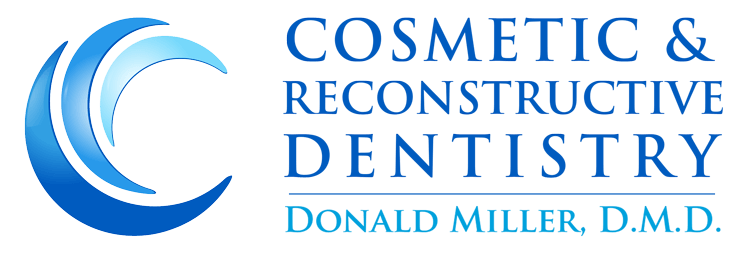Needless to say, the past year has been stressful for most Americans and we’re seeing the effects of this stress here at Cosmetic & Reconstructive Dentistry. An increasing number of patients are experiencing pain in the temporomandibular joints (TMJ), requiring TMJ appliances or Botox injections for relief. Here are some of the most common questions our patients have about treating TMJ disorder.
Will TMJ eventually go away on its own?
It’s certainly possible that your TMJ pain could be temporary, particularly if your symptoms are caused by an unusual amount of stress. In other patients, TMJ pain comes and goes throughout their lives. Regardless, you should be evaluated by Dr Miller if your pain lasts more than a few weeks, as there are a number of simple treatment options that can help alleviate your discomfort.
What happens if TMJ disorder isn’t treated?
The risk in leaving TMJ disorder untreated is that it can lead to more serious oral health issues, including permanent joint damage, fractured teeth, an enlarged jaw, and sleep apnea. Chronic TMJ is also associated with migraines and muscle pain in the neck, shoulders, and face. Without treatment, your pain will often increase, injury to the teeth will occur, and you may even dislocate your jaw.
Does TMJ cause earaches?
TMJ disorder does cause discomfort in the ears—often feelings of fullness, but sometimes earaches and tinnitus—because the temporomandibular joints are located adjacent to the ear canals. When the muscles surrounding the joints are inflamed, this can increase pressure on the ears.
Is TMJ disorder caused by stress?
TMJ disorder is indirectly caused by stress. What stress causes is muscle tension throughout the body, including the jaw. It is this muscle tension that leads to TMJ disorder. Many people clench or grind their teeth when they’re feeling stressed, often when they are sleeping.
Can TMJ disorder be treated without surgery?
Yes, non-surgical options are very effective in treating TMJ disorder. The general consensus among doctors is that invasive surgical treatments should be reserved for the most extreme cases that have not responded to any other treatments.
Will Botox injections help with TMJ pain?
Yes, Dr. Miller provides Botox injections that target the facial muscles that cause TMJ pain. Patients notice relief in a matter of days, with fewer headaches, less muscle pain, and reduced teeth grinding. The effects can last up to 9 months.
Are there other ways to treat TMJ pain if I don’t want Botox injections?
Yes, we offer custom-fitted TMJ appliances that exercise tight muscles to release the tension in your jaw, face, head, and neck. Physical therapy is also effective in treating TMJ pain.
If I get a TMJ appliance or have Botox treatments, do I still need to do physical therapy exercises?
You should continue exercising your jaw. This is important for lasting relief from TMJ pain. Just like the rest of your body, exercise needs to be performed consistently in order to strengthen muscles so they can function properly.
Learn More About TMJ Disorder Treatment
Do you think you might have TMJ disorder? To schedule a consultation with Dr. Miller, contact us today at 203-255-6878 to book your appointment.

